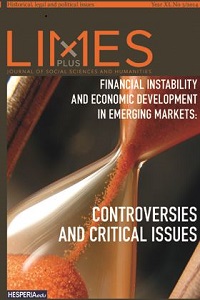Liberalised Finance and Instability
Liberalised Finance and Instability
“Does It Drop Out as a Matter of Logic”?
Author(s): Faruk UlgenSubject(s): Business Economy / Management, Financial Markets
Published by: HESPERIAedu
Keywords: Economic stability; financial liberalisation; institutional analysis; Minsky; regulation
Summary/Abstract: This article seeks to bring out the conceptual weaknesses of the assertion that free market mechanisms and liberal financial structures are necessary conditions for economic growth and stability, and to draw implications regarding financial regulatory policies required for the systemic viability. In this aim, it studies the very characteristics of a capitalist economy as a monetary economy and suggests an institutionalist analysis of the hypothesis of endogenous financial instability of Hyman P. Minsky. The process of financial liberalisation since the late 1970s led economies to a speculation-based accumulation regime. However, the sustainability of such a regime reveals to be extremely fragile since it suffers from the conflict of interest, fallacy of composition, absence of macroeconomic vision and lack of consideration of the interconnectedness among market actors. Therefore these pitfalls of free and decentralised markets must be addressed towards collective rules and principles if one would prevent them from continuously resulting in systemic financial turmoil.The main implication of such an analysis is that tough macro-prudential regulatory reforms must be implemented in order to create public-led supervision systems in which social efficiency should replace the individual economic efficiency criterion and lead policies to prevent speculative banking and finance and direct markets towards system-consistent behaviour.
Journal: LIMESplus
- Issue Year: 2014
- Issue No: 3
- Page Range: 11-28
- Page Count: 18
- Language: English

